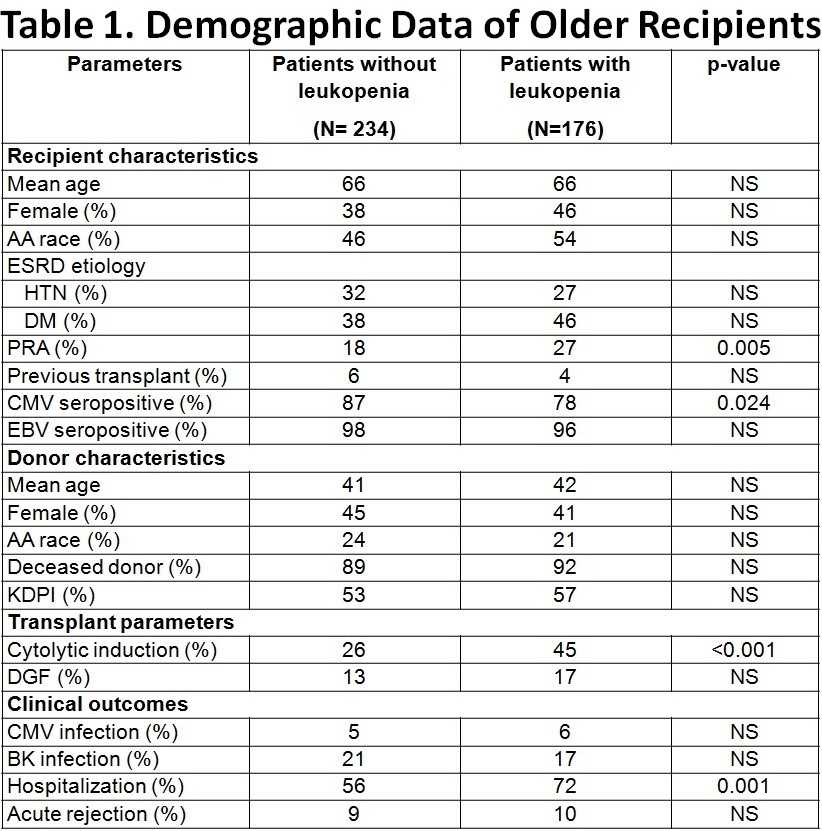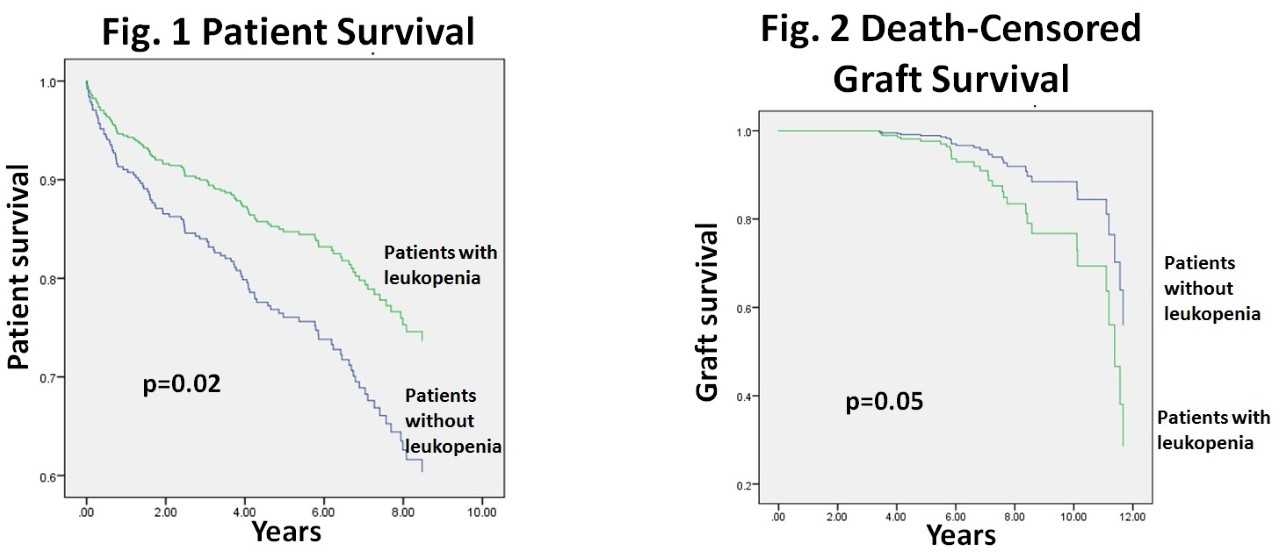Leukopenia in Older Kidney Transplant Recipients is Associated with Decreased Allograft Survival and Increased Patient Survival
Transplant Nephrology, Medical University of South Carolina, Charleston, SC
Meeting: 2019 American Transplant Congress
Abstract number: C61
Keywords: Graft survival, Leukocytes, Outcome, Survival
Session Information
Session Name: Poster Session C: Kidney Complications: Late Graft Failure
Session Type: Poster Session
Date: Monday, June 3, 2019
Session Time: 6:00pm-7:00pm
 Presentation Time: 6:00pm-7:00pm
Presentation Time: 6:00pm-7:00pm
Location: Hall C & D
*Purpose: Older kidney transplant recipients are vulnerable to side effects of immunosuppression (IS) including leukopenia. Providers often reduce MMF dose in response to leukopenia. This study explores outcomes in older patients who had leukopenia post-transplant and assessing the influence of MMF dose reductions.
*Methods: We performed a retrospective longitudinal cohort study of 410 kidney transplant recipients age ≥ 60, who underwent kidney transplantation from 2007-2015. Leukopenia was defined as a WBC <3k/cumm. Demographic data and clinical outcomes were obtained through chart review. Analyses were conducted using standard univariate statistics and multivariable Cox regression modeling.
*Results: Of the 410 patients, 176 developed leukopenia. Table 1 displays demographic data and clinical outcomes. Older patients who developed leukopenia had higher proportion of high risk CMV serostatus, higher PRA, and more frequently received cytolytic induction. Prevalence of CMV and BK infections and biopsy-proven rejection were similar between cohorts. Patients with leukopenia had significantly higher prevalence of hospitalization. Cox regression adjusting for demographics demonstrated that leukopenia was significantly associated with reduced risk of death (HR=0.61, p=0.02) (Fig.1) and increased risk of death-censored graft loss (aHR=2.16, p=0.05) (Fig. 2). MMF dose reductions were a significant mediator of the above outcomes; including this in the Cox models significantly mitigated the influence of leukopenia on graft loss and death.
*Conclusions: Leukopenia in older kidney transplant recipients has significant impact on graft and patient survival. It is possible that immunosuppression reduction in response to leukopenia may contribute to subclinical rejection that ultimately leads to graft loss. On the other hand, immunosuppression reduction might also mitigate infectious risks and lower the risk of death. Streamlined management of leukopenia, particularly with immunosuppression reduction, is needed since this can ultimately impact long-term outcomes.
To cite this abstract in AMA style:
Rodriguez R, Price A, Soliman K, Vinaya R, Lazarus D, Casey M, Labonte M, Erbe L, Shearer M, Taber D, Salas MPosadas. Leukopenia in Older Kidney Transplant Recipients is Associated with Decreased Allograft Survival and Increased Patient Survival [abstract]. Am J Transplant. 2019; 19 (suppl 3). https://atcmeetingabstracts.com/abstract/leukopenia-in-older-kidney-transplant-recipients-is-associated-with-decreased-allograft-survival-and-increased-patient-survival/. Accessed February 15, 2026.« Back to 2019 American Transplant Congress


